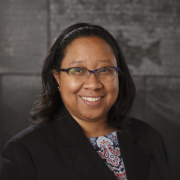National Consumers League to host first-ever virtual National LifeSmarts Championship April 17-19
April 16, 2021
Media contact: National Consumers League – Carol McKay, carolm@nclnet.org, (412) 945-3242 or Taun Sterling, tauns@nclnet.org, (202) 207-2832
Washington, DC—In celebration of Financial Literacy Month, the National Consumers League (NCL) has announced the nearly 60 champion teams who will gather this weekend to compete in the first-ever virtual National LifeSmarts Championship.
LifeSmarts (LifeSmarts.org), a consumer education competition that challenges teens in grades 9-12 about personal finance, health and safety, the environment, technology, and consumer rights and responsibilities, is a program of the National Consumers League (NCL). In LifeSmarts, students compete online and in-person at the local and state levels. Top-scorers progress to their state competitions, and then State Champion teams meet each April to compete in the National LifeSmarts Championship. In 2019, at the most recent National LifeSmarts Championship, Rhode Island’s Barrington High School took home the title.
A year ago, NCL was forced to cancel the 2020 national event due to the coronavirus pandemic, but 2020 State Champion and Wild Card teams are being welcomed back to compete in the rescheduled event, which will take place simultaneously online along with the 2021 program. In all, 33 teams will compete at the 2021 national event and 24 teams will compete for the 2020 title.
The 2020 and 2021 National LifeSmarts Champion teams will be crowned on Monday, April 19.
Complete roster of state champions teams listed below.
Consumer-savvy teens representing 30 states, the District of Columbia, and 11 Wild Card teams, will compete at this year’s event. Throughout the 2020-2021 program year, more than 100,000 teens competed online for a chance to represent their states at the 2021 National LifeSmarts Championship. Players answered more than 3.5 million consumer questions in the online competition.
“We are so proud of our 2020 and 2021 LifeSmarts champions, who have proven themselves to be the best and the brightest of the next generation of consumers,” said Lisa Hertzberg, National LifeSmarts Program Director. “For 27 years, LifeSmarts has been engaging and educating young consumers in a fun format and with a competitive approach. Our program goes in-depth on the issues kids—and young adults—are facing now as consumers and workers.”
The 2020 and 2021 National LifeSmarts Champions and other winning teams will walk away with prizes and $50,000 in scholarships. In addition to placing as a team, individual students have the opportunity to compete for scholarships by demonstrating knowledge in specific program topic areas. The top eight placing teams and top 10 individuals are recognized, as well as the recipients of specialized scholarships.
NCL thanks the sponsors who make the program possible including Amazon, Johnson & Johnson, Melaleuca, Toyota, American Express, Intuit, and the Washington State Employees Credit Union.
Event kickoff + competition and weekend activities
When: Saturday, April 17 at 1pm Eastern through Monday, April 19
Where: visit LifeSmarts.org for a link to the conference platform and more information about the program
2020 and 2021 National LifeSmarts Champions will be determined in matches taking place on Monday, April 19
Follow the competition online
Parents and supporters can follow the action at Facebook.com/LifeSmarts and via Twitter: #LifeSmartsNationals
2021 National LifeSmarts Championship Teams
Arizona—Altitude 6.0 – Flagstaff Home Educators
Arkansas—Bryant Hornets 4 – Bryant High School
California—Grizzlies2 – Los Osos High School
Connecticut—Crosby Bulldogs- Crosby High School
Florida—Leto Red – Leto High School
Georgia—Columbia County 4-H Senior Team
Hawaii—Waipahu High School
Idaho—Minidoka County 4-H Teen Association
Illinois—West Chicago Community High School
Kansas—Gardner Edgerton High School
Kentucky—Webster County 4-H
Louisiana—West Feliciana High School
Maryland—TWCA Club
Michigan—Fenton Accounting – Fenton High School
Minnesota—LCWM Blue, Lake Crystal Wellcome Memorial
Missouri—BHS Falcons – Blair Oaks High School
New Jersey—Montgomery MFJC – Montgomery High School
North Carolina—CATA Cougars, Central Academy of Technology and Arts
North Dakota—Bottineau High School
Oklahoma—Tiger 2021 – Pryor High School
Pennsylvania—Cumberland Valley High School
Rhode Island—East Greenwich High School Avengers
Tennessee—Putnam County 4-H
Texas—Bartlett FCCLA – Bartlett High School
Virginia—Econoponax – Massaponax High School
Washington—Selah FCCLA – Selah High School
West Virginia—JMHS Marketing – John Marshall High School
Wisconsin—Belleville High School
4-H Wild Card 1—Gordon County 4-H, Georgia
FCCLA Wild Card—Muleshoe Mules – Muleshoe High School, Texas
4-H Wild Card 2—Madison County 4-H, Georgia
Varsity Wild Card 1—North East High School, Pennsylvania
FBLA Wild Card—West Carteret High School FBLA, North Carolina
2020 National LifeSmarts Championship Teams
Arizona—Altitude 5.0 – Flagstaff Home Educators
DC—McKinley Technology High School
Florida—Duval 4-H Diplomats
Georgia—Oconee County 4-H
Illinois—West Chicago Community High School
Kansas—Iola High School
Louisiana—West Feliciana High School
Minnesota—Lake Crystal Wellcome Memorial
Missouri—Husker Varsity 1 – Lafayette County C-1 High School
North Carolina—North Carolina Leadership Academy
North Dakota—Jamestown High School
Oklahoma—Pryor High School
Pennsylvania—Dallas High School
Rhode Island—Barrington High School Blue
Texas—Biz-e-Teen – Midcities Montessori
Virginia—Econoponax – Massaponax High School
West Virginia—The Voluntolds – John Marshall High School
Wisconsin—Tomahawk High School
4-H Wild Card—Rockdale County 4-H, Georgia
FCCLA Wild Card—Niangua High School FCCLA, Missouri
Wild Card 1—Waipahu High School, Hawaii
Wild Card 2—Gwinnett County 4-H , Georgia
Wild Card 3—Sunrise Christian Academy, Kansas
Wild Card 4—4-H Y’all – WIT Home Educators, Virginia
###
About the National Consumers League and LifeSmarts
The National Consumers League, founded in 1899, is America’s pioneer consumer organization. Our mission is to protect and promote social and economic justice for consumers and workers in the United States and abroad. For more information, visit www.nclnet.org.
LifeSmarts is a program of the National Consumers League. State coordinators run the programs on a volunteer basis. For more information, visit: www.LifeSmarts.org, email LifeSmarts@nclnet.org, or call the National Consumers League’s communications department at (202) 835-3323.


 By NCL Executive Assistant Adrienne Archer
By NCL Executive Assistant Adrienne Archer
 By NCL Health Policy intern Talia Zitner
By NCL Health Policy intern Talia Zitner










